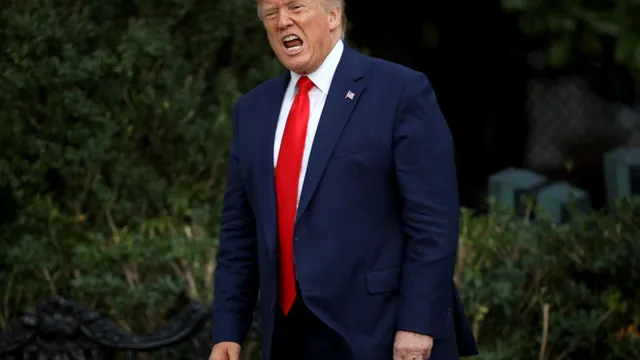
Donald Trump and Kamala Harris embrace profanity in politics
2025-05-06 10:23- Political figures like Donald Trump and Kamala Harris have been noted for employing profanity during speeches and campaigns.
- Surveys indicate varying levels of comfort with profanity among the American public, with age playing a significant role in these attitudes.
- While there is some appetite for strong language as a form of political expression, it is unclear how effective it will be in resonating with voters.
Express your sentiment!
Insights
In recent years, particularly following notable speeches and events, the use of profanity in American politics has garnered significant attention. After President Donald Trump's State of the Union address, media outlets reported on the profanity-laden reactions from various Democrats, reflecting a growing trend among political figures to embrace coarse language on the campaign trail. This phenomenon isn't new, as public figures like Donald Trump and Kamala Harris have been noted for their use of such language, challenging traditional norms. Surveys conducted over the years show a complex relationship between American attitudes towards profanity and political discourse. In 1993, 64% of respondents from a Princeton Survey Research Associates poll stated that their families adhered to the rule of not cursing, while many others admitted to occasionally using profanity in their personal lives. Fast forward to 2022, and a HarrisX/Deseret News poll revealed stark age disparities in attitudes towards cursing, with younger Americans being more tolerant than their older counterparts. This shift demonstrates an evolving social norm, though many still express discomfort with profanity in public life. As political figures increasingly resort to strong language, the question remains: can this strategy effectively resonate with voters? In a landscape where 84% of Democrats strongly emphasized the importance of opposing Trump's policies, it appears that while there is a demand for pushback, the deliberate use of profanity, especially among elected officials, may not carry the weight one would hope for, as some voters still prefer more measured discourse.
Contexts
The impact of profanity in political discourse has garnered significant attention in recent years, particularly as societal norms shift regarding language use in public and political arenas. Profanity, while often viewed as a tool of expression and emotional release, can greatly influence the dynamic of political discussions. This influence can be perceived in both positive and negative lights. On the one hand, the use of profanity can serve to convey strong emotions, establish identity or camaraderie among groups, and illustrate the seriousness of issues at hand. It can enhance the relatability of a speaker, making them seem more authentic and in touch with the sentiments of their audience, thereby fostering a sense of connection between politicians and the public they serve. Additionally, it can effectively grab attention within a media-saturated environment, leading to wider dissemination of messages, particularly in social media contexts, where shock value can enhance engagement and virality. Conversely, the introduction of profanity within political discourse can lead to a range of negative repercussions. It may alienate certain voter demographics who view such language as unprofessional, immature, or divisive, potentially undermining a politician's credibility and hampering their ability to build coalitions. The coarsening of language in politics can also contribute to the overall decline of civil discourse, where meaningful dialogue is overshadowed by inflammatory remarks and personal attacks rather than policy debates and respect for differing viewpoints. This erosion of decorum can lead to increased hostility within political environments, complicating legislative processes and civil negotiations. Furthermore, when profanity becomes a norm, it risks desensitizing audiences to extreme language, potentially blurring lines between acceptable discourse and hate speech or incitement to violence. Research indicates that the effect of profanity in political speech can vary significantly depending on context, audience, and medium of delivery. For instance, studies have shown that younger voters may respond more favorably to candidates who use informal, candid language, including profanity, as it resonates with their communication styles. In contrast, older generations or more traditional audiences may prefer a more restrained and civil approach to political dialogue. The platform also plays a crucial role; profanity-laden remarks may perform differently on platforms such as Twitter, where brevity and shock often reign, compared to longer-form discussions in televised debates or formal interviews. Understanding these audience dynamics is essential for politicians seeking to navigate the complexities of modern political communication. In conclusion, while profanity in political discourse can serve as both a tool for engagement and a potential pitfall for alienation, its impact is multifaceted and heavily contingent on contextual factors. As political landscapes continue to evolve, so too must the strategies employed by politicians to communicate effectively with their constituents. The balance between authenticity and professionalism remains delicate, and those who can master this balance may find themselves better positioned within the turbulent waters of contemporary politics. Therefore, as we analyze the role of profanity in political speech, it is imperative that we remain attentive to the broader implications for democratic discourse and community cohesion.